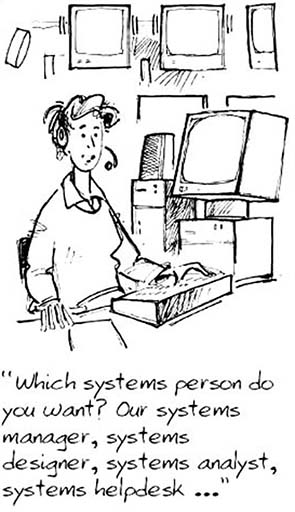5 Types of systems
Everyone is involved with things called systems – information systems, financial systems, ecological systems, computer systems, education systems; and to this list I can add many things which are often called systems by professionals in a particular field. For example, doctors talk of the nervous system in the body, therapists of the family system to which each of us belongs, engineers of fail-safe systems in a car or power station. In general, all these systems seem complicated and often behave in unpredictable ways. Many firms, to take one instance, have introduced computerised information systems and found that the information particular people need is so buried in the piles of computer printout that it takes longer to find the relevant information than it did when it was kept in shoe boxes. Or, another common experience, the system has changed people's jobs in unexpected and unintended ways leading to industrial difficulties and then to an awkward restructuring of the firm.
Activity 1
What systems do you come across in your life? Write down three or four examples under the two headings below
Work-based systems
Personal systems
Discussion
My own list of systems for this activity are:
Work based – internal telephone system, budgeting system, departmental planning system, accommodation allocation system;
Personal – central heating system, personal computer system, holiday planning system, personal transport system.
It is apparent from this list, and probably from your list too, that the word ‘system’ can be used in a number of ways.

